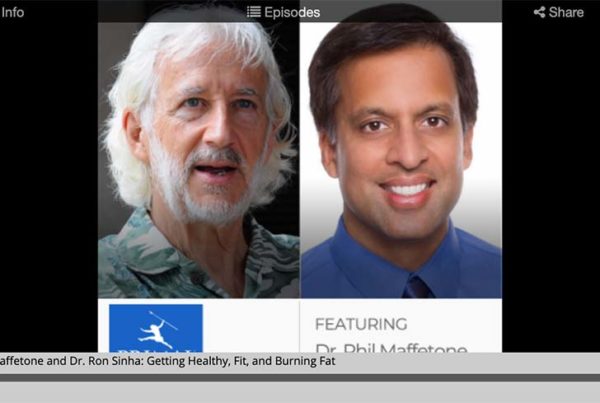
Despite a recent trend showing reductions in consumption of refined carbohydrate, it’s not significant enough to stop the epidemics of fatness and disease. It’s too little too late as the damage that’s already been done continues affecting the current population and future generations.
Between 2000 and 2011, U.S. consumption of refined carbohydrate, including sugar, appears to have decreased. You’ll no doubt hear more about this, especially from the sugar industry, which has claimed for decades their products have not made people sick and fat. While any reduction in junk-food consumption can only be viewed as a healthy direction, this apparently good news is still deceiving because sugar consumption is still at all-time highs.
Many years ago I witnessed a similar trend in individual patients. Here’s one case.
It was great to see Mr. Jones (not his real name) eating healthier, much less white bread, rolls, sugar and all those snacks, while avoiding fast-food restaurants. He made those changes following a scare from his primary physician warning that blood pressure, triglycerides and cholesterol, and blood sugar were all suddenly too high — the same problems his father had around the same age just before dying of a heart attack.
A month earlier, following my initial examination and a dietary analysis, my recommendations included that Mr. Jones reduce carbohydrates significantly. He began that day.
During his next visit a month later, his eating diary also showed more fresh vegetables, eggs and healthy fats, with more frequent meals. The problem, however, is that few signs and symptoms of Mr. Jones’ poor health changed.
This was unexpected, since many signs and symptoms should respond quickly to primary interventions. It should not take months to observe and measure health changes when the right remedy is implemented. Did I miss something? Was he honest about his eating?
Mr. Jones had insulin-resistance, which doctors call by various other names such as hyperinsulinemia, glucose intolerance and the newest name in the 1980s, Syndrome X. I referred to it simply as carbohydrate intolerance, a name that patients could easily relate to without confusion.
Carbohydrate intolerance is often a primary problem because of its impact on insulin, blood sugar and reductions in fat-burning. By reducing refined foods, the body usually responds quickly. High blood pressure levels can plummet, as can triglycerides in the blood, in only a matter of days. The subjective feeling of energy also can change fast too, with the elimination of fatigue. The same goes for hunger and cravings. But none of these changes occurred in Mr. Jones.
Mr. Jones’ case was quite typical, it appeared.
A clue came in a follow-up blood test. After a month of eating significantly better, fasting insulin and glucose levels were not different. Then it was clear. While my patient reduced carbohydrate foods by a significant amount, it was still not at a healthy level for him. His insulin-sensitive body still responded to the smaller amounts of unhealthy food, almost as much as before.
As a last resort, I suggested he further reduce carbohydrates, especially considering his family history of diabetes and heart disease, with another blood test and dietary analysis in one month.
About a week later, Mr. Jones stopped by the clinic to tell me he felt quite different since these latest dietary changes. His energy was suddenly much better, with cravings and hunger almost gone. My first thought was to check his blood pressure, and it was normal for the first time in years.
It appeared by reducing his biochemical stress with a sufficiently lower dose of carbohydrates Mr. Jones had reached a breakthrough metabolic level of health. The result was a sudden and significant change in signs and symptoms. It was like a tipping point in reverse.
I asked him to come back to the clinic three days later to check his blood pressure again, which he did and it remained normal. But he wanted to retest his blood right away instead of waiting.
I already knew there were certain easy-to-assess markers of carbohydrate intolerance, such as fatigue, hunger and, in those with hypertension, reductions in blood pressure. Once these abnormal signs and symptoms change, most others typically follow, sometimes quickly. These include triglyceride and blood sugar levels, inflammation, hormone balance, and numerous others.
Several days later, blood test results were clear: triglycerides, glucose and insulin were normal, and cholesterol had finally moved close to normal.
The reversed tipping point is one not uncommon in the body. Allergic reactions follow a similar pattern, including those from foods and the environment. Until an allergy sufferer reduces the stressful offending substance, improvements will not be significant. Likewise for commonly used drugs such as alcohol and caffeine, and even more so for clearly harmful ones like heroin and nicotine — just cutting back on cigarettes isn’t good enough, for example.
Diminishing amounts of most stressful substances reach a point where these no longer cause metabolic, immune, gastrointestinal or other impairments.
The reasons may be simple. Years of eating refined carbohydrates changes the body’s ability to use glucose by making it more resistant to insulin. With time, even smaller amounts of insulin-stimulating foods can overproduce insulin, triggering a barrage of signs and symptoms indicative of dysfunction and rising disease risk. The same thing has been happening to most of the world’s population. And it shows with the continued risk in those who are overfat and obese, with diabetes, cardiovascular disease, Alzheimer’s and other epidemics. These have not leveled out nor are they declining, indicating reduced carbohydrate intake has not impacted these problems.
So if we are witnessing a reduction in sugar intake, it also appears too little and too late. Like in Mr. Jones, the damage has been done in the body, and even our genes. A family history of diabetes, as one example, is a significant risk factor for carbohydrate intolerance, and as the diabetes epidemic continues exploding, more children have that family history. It may be why children are the fastest-growing group of obese people.
My approach to carbohydrate intolerance changed in the 1980s, when instead of reducing bad foods to a level that caused less harm I went the other way. The Two-Week Test allowed patients to eliminate refined foods for two weeks to experience what it’s like without them. Now, there’s no reason to experiment so slowly. Start at very low levels, then add natural carbohydrates back into the diet and if unhealthy signs and symptoms start to appear it’s obvious that too much has been consumed.
Mr. Jones’ future blood tests remained normal. Improved health was also evident in his reducing waist and weight, dramatic reduction of chronic disease risk factors and a higher quality of life.








